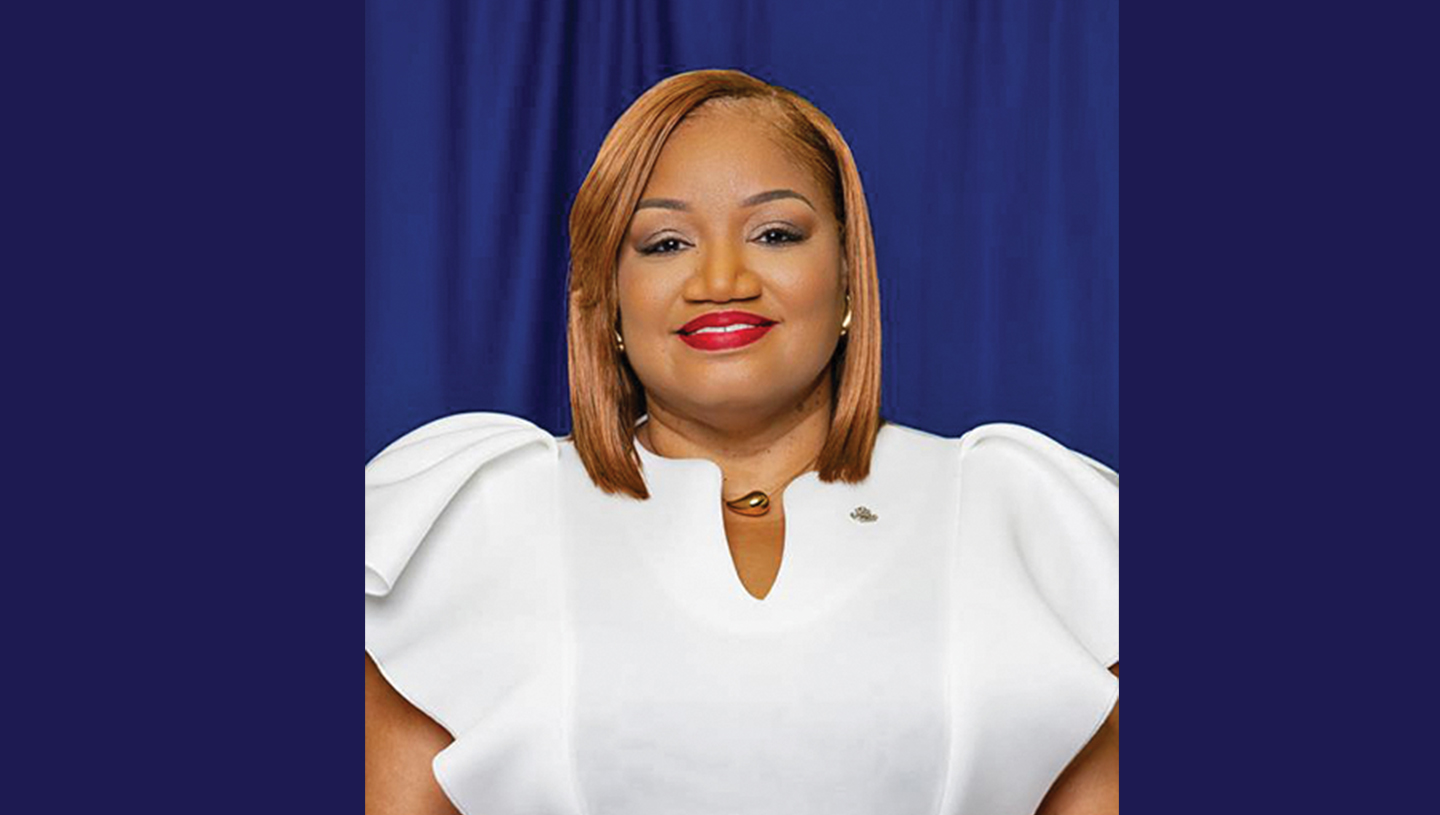
24 Jun Interview with Marinka J. Camps, Minister of Finance, Sint Maarten
Can you outline your role as Minister of Finance, explaining your remit and role within the government and parliament of Sint Maarten?
We are a touristic country, dependent solely at this point on tourism. We will do anything we can to highlight our unique and beautiful country. I am the first female Minister of Finance since we obtained our autonomy in 2010, but I can’t only take credit for myself. My team is there for me. including longstanding civil servants making sure of the basic things — budget being met, procedures in terms of legal.
There are currently no new policies being implemented for 2025. However, as we go on, we will have amendments once some of our new cabinet members have had the opportunity to peruse the budget, determine the wish lists for their respective ministries, come together as a council of ministers and decide what we want for the country.
I want to streamline these procedures. I think there’s a lot of red tape sometimes. I’m not trying to cut corners. I’m just trying to make it more efficient for everyone and then go defend it to our parliament, making sure that we can get the budget passed, knowing that there are key points within the budget that are dependent on loans. These matters have to be passed so that our loans can be approved. We had a successful 2024 budget amendment approval, unanimous first time by the country of Sint Maarten.
However, the budget doesn’t take a day to put together. These are months being planned. It has to go through various stakeholders to get from point A to point B. And of course, we’re dependent on other factors which have priorities as well. I think going forward, it would be wise for us to plan out with these various stakeholders the dates and what becomes priority, so that we are not faced with a situation where a budget for the country cannot be passed by a specific deadline.
What are the main revenue areas for the government, the number of people employed in the government and your main considerations in budgetary allocation?
Our biggest source of revenue is taxes, specifically wage tax and turnover tax. That means the country is carried by its workforce and while I am grateful for every individual who is working and contributing to the budget and the country, there has to come a time when they need some relief. There must come a point where we say we cannot carry this country on the backs of the people alone. We have to look at ways and avenues in which they get relief. Not only those who contributed to wage tax, but also profit tax. We are the highest within the region, at 34 percent.
I say let’s reduce. Let’s try and look at ways of reducing wage tax, of reducing profit tax. Let’s give some benefits to our seniors. They are not taxed on their pension, but if there’s additional income, that is now compiled in one and the whole thing is being taxed. I don’t think that’s totally fair. We have to look at ways to bring down the cost so they can have more spending power, then increase our budget in a different capacity.
What is the state of domestic goods and services in Sint Maarten and are local production and local services something you’re trying to encourage?
We have our food which is unmatched in the Caribbean. I think I can say we have the sea, sun and sand, but we have 37 beaches for every mile of this country. You can pick a beach literally every day and visit some more often than others. We have casinos, which are rare on some of the other islands. We have a new airport after the hurricane and we have plans to increase the quality of rental infrastructure.
Here, we are known as the “friendly island.” I think that is something you need to be able to experience when you come here. Safety is equally important. Our Minister of Justice is doing her best to ensure safety, because without that, the tourism product is gone.
And then maybe we want to talk about the dollars.
Most of your visitors come from the U.S. and Canada. How deep are business ties between the U.S. and Sint Maarten and what opportunities for investment are there so we can entice them to come?
There’s a treaty between the U.S. and Sint Maarten but I feel that the treaty is one-sided, so it benefits the U.S. so we will have to definitely look into seeing how it can be beneficial for both and in what areas. There was a discussion before I took office, on Sint Maarten being able to have customs preclearance so that when you are going to the US, you don’t have to go through customs again. It would be nice that we can revisit those conversations on preclearance where possible.
The government-owned Winair is very important to the island. Can you expand on the government’s position toward Winair and future financial expansion opportunities?
Winair is one of the government-owned companies that is in a great financial position as we speak. I am happy to know we now have direct flights to Barbados, St. Lucia, I believe it St. Vincent as well. This is a great thing for Sint Maarten because now it’s easily connected. I consider us the hub between these islands.
I see only great things for Winair and by extension than the entire Princess Juliana International Airport. I know that Winair recently purchased a new plane and I believe the intention is to purchase one more within the coming year.
You have begun Finance Fridays this month with your constituents. What have been the major takeaways so far and have you managed to resolve any difficulties?
I’m very happy about Finance Fridays because I get to discuss matters with our constituents. These are people who elected our parliament then appointed me to represent the people of this country, so I don’t believe that I should close my doors to hearing them out. Finance Fridays allows people to come in, albeit 20 minutes per person between 9:00 and 12:00 and express their concerns, in areas of a financial nature, meaning they have a tax issue that they would like to get resolved or they have an outstanding balance that is due to them for being a vendor and they haven’t been paid as yet.
However, I must admit that there are people who come in and their questions have absolutely nothing to do with finance, but maybe another ministry but they try to get their situation resolved anyway. On the other end, I have people who come in and they give advice. These are not individuals who want anything specific, but areas in which it could be beneficial. There are two ladies that come in here usually on Fridays and they sit down with me to talk about what they hear. They say I need to look into this or that and how can I do it? One of the things that we took away from them, just two weeks ago, was implementing a savings plan for civil servants. So I’m giving civil servants the opportunity for a net take-home deduction, of between 50 and 200 guilders ($27-$111) per month. They can decide which category they want and that will be deducted from their take-home pay and in December they will get it paid out untaxed and that will be a means of savings.
What would be your final thoughts and message for Miami Herald readers reading this beautiful report on Sint Maarten?
I encourage everyone not only to visit if they have not, but to also come to Sint Maarten and see how they can invest. We have great opportunities here. One of the incentives that the government has on the table right now is a tax holiday which gives you some freedom. While you’re investing, building, doing whatever it is for the benefit of this country, you get a relief in terms of the taxes. There are a lot of areas in which investment is needed. Come to Sint Maarten, our unique 37-square-mile island where you can enjoy cuisine from anywhere. We have so many nationalities here in Sint Maarten. I would encourage and hope to see them here.


Sorry, the comment form is closed at this time.